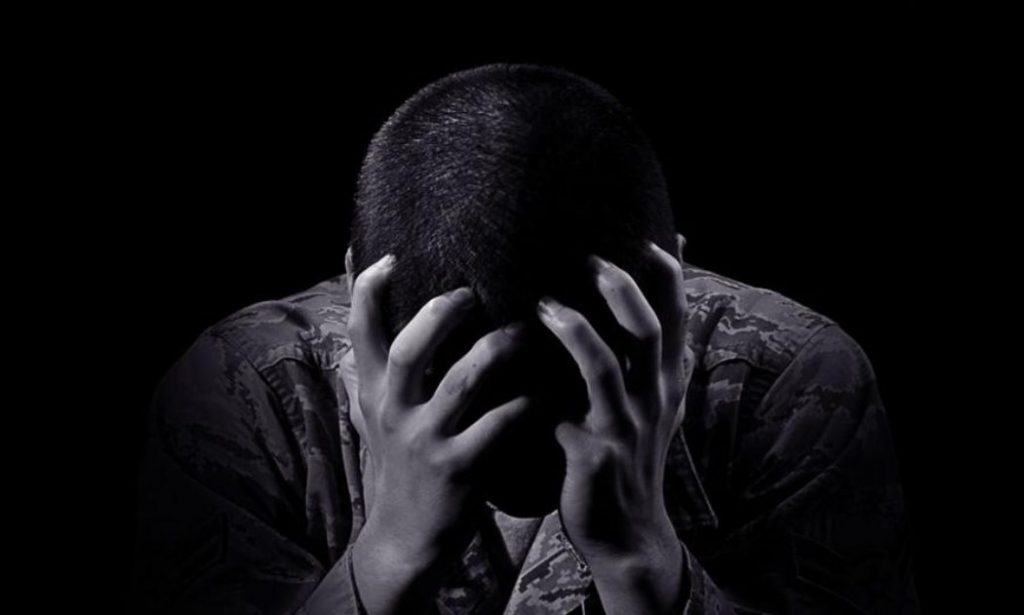Before the pandemic, many of us would have celebrated on days we were able to stay at home. No need to go to work. No need to endure traffic jams. Happily accepting a little alone time, and catching up on some well-deserved rest, knowing it wouldn’t be long before we have to return to the daily grind.
The pandemic has tried and tested all of humanity. Whilst some contracted the virus and suffered tremendous physical effects, others lost their livelihood suddenly or over time as a result of lockdowns. We must remember that not all pain can be seen and COVID kills in more ways than one.
Mental health problems, stress, anxiety, depression, abuse, and suicidal tendencies are some of the unseen epidemics that have seen an increase since the pandemic began. The series of lockdowns have exacerbated this ‘unseen’ crisis and pushed many to the edge.
Between January and December 2020, a total of 1080 people who attempted suicide were reported to receive treatment[1]. There were 631 suicides in that time frame[2]. Unfortunately, these numbers have just kept rising.
The nation’s Director General of health, Dr Noor Hisham Abdullah, said that there were an average of four suicides a day for the first three months of 2021[2].
These numbers are more than half of the cases reported throughout 2020[2] and we are not done with 2021 yet.
A total of 122,328 calls have been made to KKM between 1 January – 18 June 2021[3]. 109, 806 (89%) of which were cries for help and emotional support[3].
Hospital Kuala Lumpur saw a 20% increase in the number of psychiatric patients, all looking for the desperate medical intervention that they need[4]. Yet, as lockdowns continue, even with round the clock helplines, this level of uncertainty makes it hard to see the light in the tunnel.

Dr Amarpreet Kaur, a Consultant Psychiatrist and Clinical Hypnotherapist from the Department of Psychological Medicine, Universiti Malaya, provided insights on coping mechanisms amongst the unemployed. By giving a full rundown on the psychological effects of losing one’s job, Dr Amarpreet Kaur not only highlighted the extent of the mental health crisis but also methods to ensure extreme measures like suicide are avoided.
How Severe is the Mental Health Crisis?
Suicide is the leading cause of death amongst young adults. Every year, we lose an estimated 800,000 lives to suicide globally[5].
What’s even more saddening is that for every adult that dies to suicide, there are another twenty more attempting to follow suit[5].

Mental health does not differentiate, neither does the act of suicide. However, whilst women are more likely to attempt suicide compared to men, men are more likely to succeed[5]. What makes this problem even more challenging is that on top of not being able to see the struggles of those that are affected, many do not seek out or receive help.
Many of us find out when it is already too late.
What Caused the Rise in Mental Health Problems?
Experts have called this a crisis within a crisis. Currently, unemployment rates are higher than they were during the 1997 Asian Financial Crisis and historically economic downturns often correlate with mental health disorders and suicides[5].
Some of the causes contributing to the spike in mental health problems include loss of employment, no source of income, family conflicts, interpersonal relationship problems, stigma and lack of access to aid services. People have not only lost their jobs and income but also their place of dependence, belonging and even, identity. Extended lockdowns are a mixture of scenarios.

For some it may lead to arguments amongst family members, promoting conflict and potential abuse. Whereas others are separated from their families, unable to go home because of movement control orders. Prolonged isolation, amongst other high-stress situations, corresponds with depression, anxiety, panic disorders, and more.
I didn’t want to live. It had gotten to a point where I was just tired of living. I thought that if I died today, then at least I wouldn’t have to face these problems tomorrow.[4]
How Some Were Able to Adapt to Job Retrenchment?
When we talk about the loss of a job, it is not just the loss of income. For many, it is the loss of their hard-earned careers, their dream jobs, and their passions. Being asked to take indefinite leave or just being let go can trigger all types of emotional responses. Dr Kaur stated that those that are able to adapt to sudden change are less prone to prolonged psychological impacts.
The people are thrown into disrupted routines, constant uncertainties and worries about their livelihoods, on top of prolonged isolation and existing mental health issues. In the interview with Dr Kaur, she shared some ideas on how to increase adaptability in a life of post-retrenchment:
- Give yourself time to grieve.
- Try to remember that this is a temporary setback. There are always more ways to turn things around. Try to see the silver lining in the situation.
- Try to develop new relationships and expand your social circles. This is great for finding the right support post-retrenchment and opening up opportunities to new possibilities. Keeping your communication lines open is important.
- Take care of yourself. Self-care is key for mental and physical wellbeing. Try to get enough sleep, exercise, and eat healthily[5].
How Can You Help If You Know Someone Who is Going Through A Low Season?

Mental health is not something that is visible, but it can cripple us on the inside and can be potentially fatal. Even if we are not professionally trained to identify suicide markers or mental distress, we can help by just checking in.
A conversation and a bit of effort go a long way. If you know someone that is struggling, just being there for them is a good first step. Listen to their problems and show empathy. This is their struggle.
As their close one, you can advise them to seek the appropriate medical attention, as you would if they suffered any other physical injury. All forms of judgemental behaviour need to be avoided at all costs.
If you are unsure, you can pay attention to the little things.
Pay Attention To The Little Things
Even though Covid-19 is hard enough to detect, there are several physical symptoms that can be observed. The flu-like symptoms, fever, the lack of taste are all indicators of having contracted Covid-19. However, there are barely any visible signs when it comes to detecting mental illness.
A person may signal various warning signs that show that they are contemplating suicide. They can be verbal, non-verbal, behavioural and even situational[6]. Many of these warning signs go unnoticed. For example, simple phrases like, “I just can’t take it any more”, “They are better off without me anyway”, “If I leave now then it’ll be easier for everyone” is all giveaways to someone contemplating suicide[6].
Their body language and behaviours are also giveaways. Closed off demeanours, depression, sudden outbursts, neglect of appearance or health, extreme sleeping patterns, substance abuse are just to name a few. There are also those that give away prized possessions out of the blue as a sign[6].
According to Dr Noor Hisham, anyone that shows the following symptoms should be advised to seek professional medical advice immediately[2]. For those that are struggling, please understand that you are definitely not alone. If you feel like you need to be heard, do not hesitate to contact the numbers below:
- Mental Health Psychosocial Support Service (MHPSS): 03-29359935 or 014-3223392
- Talian Kasih: 15999, or WhatsApp 019-2615999
- Jakim’s Family, Social and Community care centre: WhatsApp 0111-9598214
- Befrienders Kuala Lumpur: 03-76272929
Explore Our Sources:
- Bernama. (2021). Covid-19 Pandemic:85.5% of Distress Calls Involved Mental Health Issues – MOH. The Sun Daily. Link.
- Free Malaysia Today. (2021). A Shocking Statistic – Four Suicide Cases A Day in First Three Months. Link.
- Bernama. (2021). Lebih 120,000 Panggilan Minta Bantuan Sokongan Emosi Diterima KKM. Free Malaysia Today. Link.
- TV3. (2021). Kesihatan Mental: Kes Di HKL Dilapor Meningkat 20%. Link.
- A. Kaur. (n.d). In Conversation with Doctors: Coping Mentally When Unemployed. UM Specialist Center. Link.
- United Way. (n.d). Suicide: Warning Signs and What to Do. Link.

